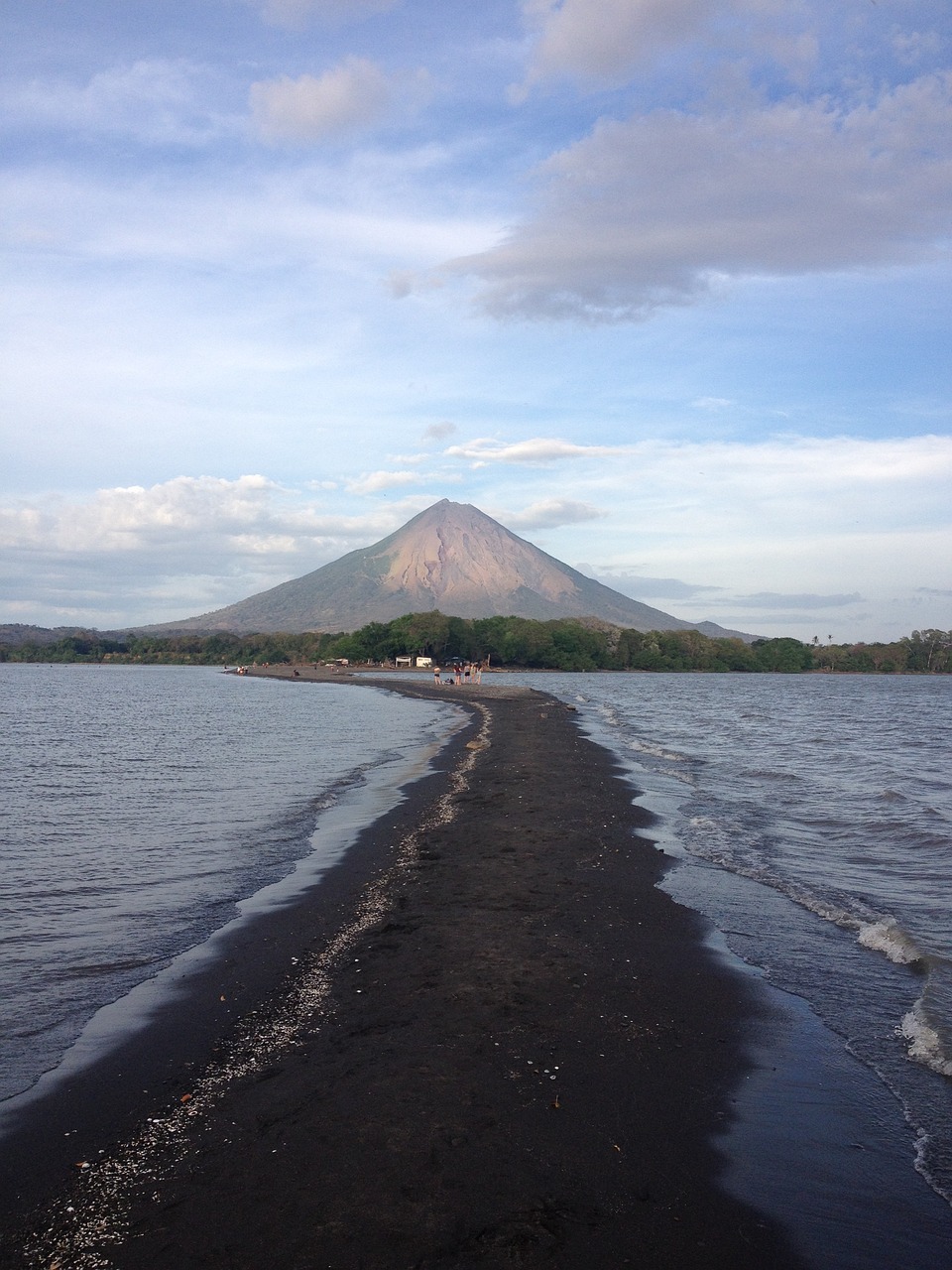Retaining Productivity: Facing Common Challenges in Nicaragua
Nicaragua, known for its beautiful landscapes, rich culture, and vibrant economy, faces various challenges when it comes to retaining productivity. In this article, we will explore some of the common challenges that individuals and businesses encounter in Nicaragua and discuss strategies to overcome them. By understanding these challenges and implementing effective solutions, individuals and organizations can enhance their productivity and contribute to the overall growth of the country.
Economic Instability
Nicaragua has experienced periods of economic instability, which can negatively impact productivity. Fluctuating exchange rates, inflation, and political uncertainties can create an unfavorable business environment. To address this challenge, businesses should consider implementing risk management strategies such as diversifying revenue streams, hedging against currency fluctuations, and staying informed about the political and economic landscape. By proactively managing economic risks, businesses can maintain stability and productivity.
- Diversify revenue streams: Companies can reduce their dependence on a single market or industry by expanding into new markets or offering diversified products and services.
- Hedging against currency fluctuations: Businesses can use financial instruments like futures or options contracts to protect themselves from adverse currency movements.
- Stay informed about the political and economic landscape: Regularly monitoring news and updates on political and economic developments can help businesses anticipate potential risks and take appropriate actions.
Infrastructure Limitations
Infrastructure limitations, including inadequate transportation networks, unreliable power supply, and limited access to high-speed internet, can hinder productivity in Nicaragua. To address these challenges, the government and private sector can work together to invest in infrastructure development and improve connectivity. Additionally, businesses can adopt alternative solutions to mitigate the impact of infrastructure limitations on productivity.
- Invest in infrastructure development: Governments can allocate funds for infrastructure projects, including road construction, power grid improvements, and internet connectivity expansion.
- Adopt alternative solutions: Businesses can explore innovative approaches such as remote work arrangements, utilizing renewable energy sources, and investing in satellite internet technology to overcome infrastructure limitations.
- Collaborate with stakeholders: Governments, businesses, and communities can collaborate to identify infrastructure priorities and develop sustainable solutions that benefit all stakeholders.
Education and Skills Gap
An education and skills gap can pose challenges to productivity in Nicaragua. Limited access to quality education and vocational training programs can result in a workforce that lacks the necessary skills for various industries. To address this challenge, investments in education and skills development are essential.
- Improve access to quality education: Governments can invest in building schools, providing scholarships, and offering distance learning programs to improve access to education, especially in rural areas.
- Promote vocational training programs: Collaborations between educational institutions and industries can help develop vocational training programs that align with the needs of the job market.
- Encourage lifelong learning: Businesses can support employee training and development initiatives to bridge the skills gap and enhance productivity.
Social and Political Unrest
Nicaragua has experienced periods of social and political unrest, which can disrupt productivity and business operations. Protests, strikes, and civil unrest can create an uncertain and unstable environment. To address this challenge, businesses can implement strategies to ensure the safety and well-being of their employees and maintain business continuity.
- Develop crisis management plans: Businesses should create comprehensive crisis management plans that outline procedures to follow during periods of unrest, ensuring the safety of employees and minimizing disruptions to operations.
- Monitor travel advisories: Staying updated on travel advisories and security alerts can help businesses make informed decisions regarding employee travel and international operations.
- Engage with local communities: Building strong relationships with local communities can help businesses navigate social and political challenges and foster resilience during times of unrest.
Environmental Vulnerabilities
Nicaragua is vulnerable to natural disasters such as hurricanes, earthquakes, and flooding. These environmental vulnerabilities can have a significant impact on productivity, particularly in sectors such as agriculture and tourism. To address this challenge, businesses and individuals can implement measures to mitigate the impact of natural disasters and adapt to changing environmental conditions.
- Implement disaster preparedness plans: Businesses should develop and regularly update disaster preparedness plans that include evacuation procedures, communication protocols, and strategies for business continuity.
- Invest in resilient infrastructure: Constructing buildings and infrastructure that are designed to withstand natural disasters can minimize damage and reduce downtime.
- Support sustainable practices: Adopting sustainable practices in sectors such as agriculture and tourism can contribute to environmental resilience and long-term productivity.
Promoting Work-Life Balance
Work-life balance plays a crucial role in maintaining productivity and overall well-being. In Nicaragua, as in many other countries, individuals often face challenges in balancing their professional and personal lives. Employers and employees can work together to promote work-life balance and create a productive and fulfilling work environment.
- Flexible work arrangements: Offering flexible work schedules, remote work options, and paid time off can empower employees to manage their personal commitments effectively.
- Encourage regular breaks and vacations: Employers should encourage employees to take regular breaks and vacations to prevent burnout and promote mental and physical well-being.
- Provide wellness programs: Implementing wellness programs that focus on physical fitness, mental health, and stress management can contribute to a healthier and more productive workforce.
Investing in Technology
Embracing technology can significantly enhance productivity in Nicaragua. Adopting digital tools and solutions can streamline processes, improve communication, and increase efficiency. However, limited access to technology and digital literacy can be barriers to technological advancements.
- Expand access to technology: Governments can invest in improving access to technology, including internet connectivity and affordable devices, particularly in rural areas.
- Provide digital literacy training: Offering digital literacy programs can empower individuals with the skills needed to leverage technology effectively.
- Encourage innovation: Businesses should foster a culture of innovation and explore emerging technologies that can drive productivity gains in their respective industries.
Supporting Entrepreneurship
Entrepreneurship plays a vital role in driving economic growth and productivity. In Nicaragua, aspiring entrepreneurs face various challenges, including limited access to financing, bureaucratic hurdles, and a lack of business support services. To support entrepreneurship and foster productivity, initiatives should be implemented to address these challenges.
- Facilitate access to financing: Governments and financial institutions can establish programs and initiatives that provide easier access to capital for entrepreneurs.
- Simplify bureaucratic processes: Streamlining administrative procedures and reducing bureaucratic hurdles can encourage entrepreneurship and enhance productivity.
- Offer business support services: Providing mentorship programs, networking opportunities, and business development resources can help entrepreneurs overcome challenges and thrive.
Promoting Collaboration and Knowledge Sharing
Collaboration and knowledge sharing are essential for fostering productivity and innovation. Creating platforms and opportunities for individuals and organizations to collaborate and exchange ideas can drive growth and enhance productivity in Nicaragua.
- Establish innovation hubs: Developing innovation hubs that bring together entrepreneurs, researchers, and industry experts can facilitate collaboration and knowledge sharing.
- Encourage industry-academia partnerships: Collaboration between academia and industries can promote research, technology transfer, and the development of skilled talent.
- Organize networking events and conferences: Hosting networking events and conferences can provide individuals and organizations with opportunities to connect, share knowledge, and explore potential collaborations.
Image 1: Nicaragua

Conclusion
Retaining productivity in Nicaragua requires addressing and overcoming various challenges. By proactively managing economic risks, investing in infrastructure development, bridging the education and skills gap, navigating social and political unrest, mitigating environmental vulnerabilities, promoting work-life balance, embracing technology, supporting entrepreneurship, and fostering collaboration and knowledge sharing, individuals and businesses can contribute to a more productive and resilient Nicaragua. With a collective effort to address these challenges, Nicaragua can continue to thrive and grow.
References
- Central Bank of Nicaragua: www.bcn.gob.ni
- Nicaragua Ministry of Development, Industry, and Commerce: www.mific.gob.ni
- Nicaragua Tourism Board: www.visitanicaragua.com
- World Bank: www.worldbank.org
- Nicaragua Chamber of Commerce: www.caconicaragua.org

